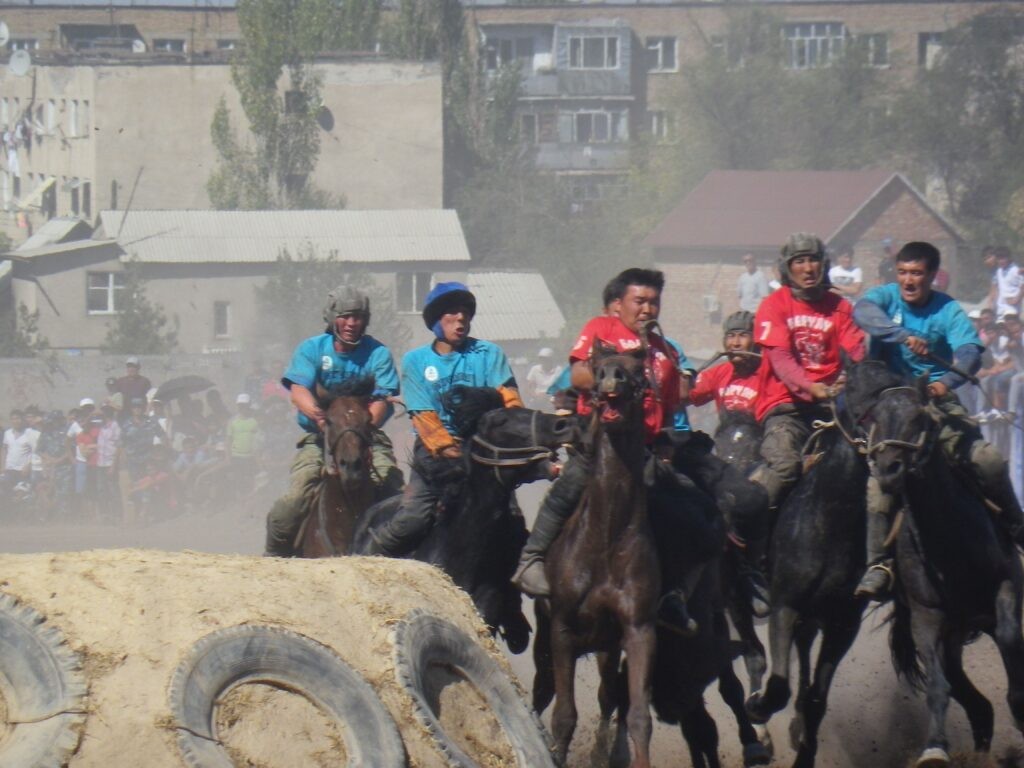Trump Tariffs: A Barrier for Kyrgyzstan, or an Opportunity?
Akylbek Japarov, former head of Kyrgyzstan’s Cabinet of Ministers, has described the United States’ newly imposed trade duties as an "economic earthquake" already reshaping global markets. However, he sees an opportunity for Kyrgyzstan, which faces a comparatively low U.S. tariff rate of just 10%. A Regional Advantage Japarov argues that China has been hit hardest by the new U.S. tariffs. “Following the introduction of duties, Chinese goods are 20-35 percent less competitive, not due to the nominal tariff alone, but because of higher overall costs, disrupted logistics, contract renegotiations, and increased risk premiums,” he explained in a Facebook post. “Part of that market is being freed up, for someone else.” Kyrgyzstan, along with Uzbekistan and Tajikistan, faces a 10% U.S. tariff rate. In contrast, Kazakhstan’s goods are subject to 27% duties. Japarov sees this as a competitive edge that Kyrgyzstan could leverage to integrate into new supply chains, especially while global players are adjusting to the new trade landscape. The former prime minister believes the country is well-positioned geographically, situated between China, the Eurasian Economic Union (EAEU), and South Asia, with low production costs and access to regional markets. While Kyrgyzstan’s total trade turnover stands at around $16 billion, the U.S. accounts for only 4% of that figure. Key exports to the U.S. include shoes, tobacco products, animal-derived goods, and pharmaceuticals. Japarov suggests Kyrgyz businesses focus on re-exports, product localization, and packaging. He calls for investments in logistics and customs certification, and for the government to craft a new export strategy. “While some see a threat, others are building export channels. While some are calculating losses, others are increasing production,” he said. An Opening for Business, Not Policy In an interview with The Times of Central Asia, Sergei Ponomarev, president of the Kyrgyz Association of Markets, Trade and Services, said the new tariffs should be viewed as part of a larger negotiation process. “The trade war has begun. China, the European Union, and other countries are already responding. But the duties have also triggered a wave of global inflation. These are high risks but also great opportunities,” he said. Ponomarev noted that Kyrgyzstan’s limited integration with the global economy means it will likely experience only indirect effects. Still, he pointed to past examples of adaptive trade strategies. Before joining the EAEU, Kyrgyz entrepreneurs often re-labeled Chinese products as “Made in Kyrgyzstan” for resale in Russia. In some cases, Chinese producers even falsely labeled their goods as Kyrgyz to benefit from preferential access to the Russian market. He suggested similar tactics could re-emerge under the current trade environment. “Some businesses may exploit the 10% duty. Chinese goods could be repackaged in Kyrgyzstan or processed through joint ventures,” Ponomarev said. “For example, a sweater could arrive from China, sleeves sewn on in Kyrgyzstan, and the product re-exported as local.” Such methods, he noted, may be feasible in low-tech sectors like apparel, but Kyrgyzstan lacks the skilled labor force needed to replicate this in high-tech manufacturing. Ponomarev concluded that while Japarov’s ideas are...






